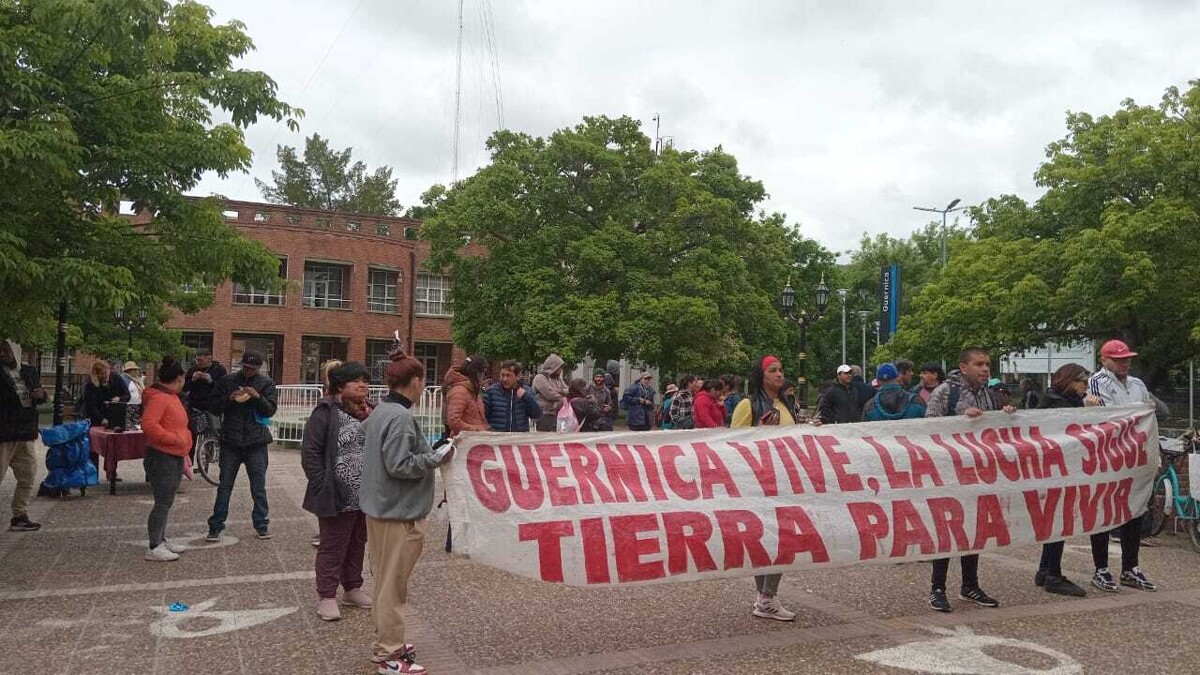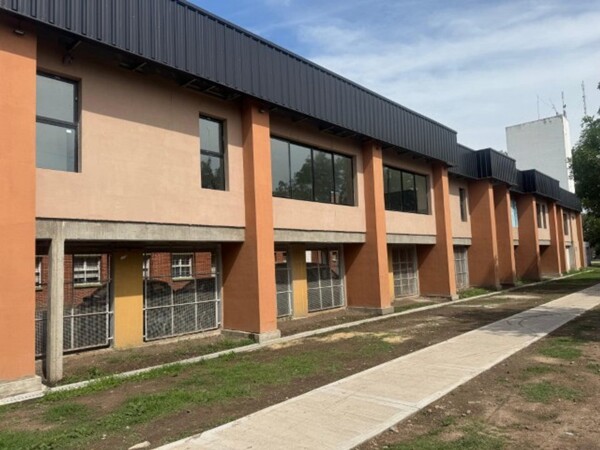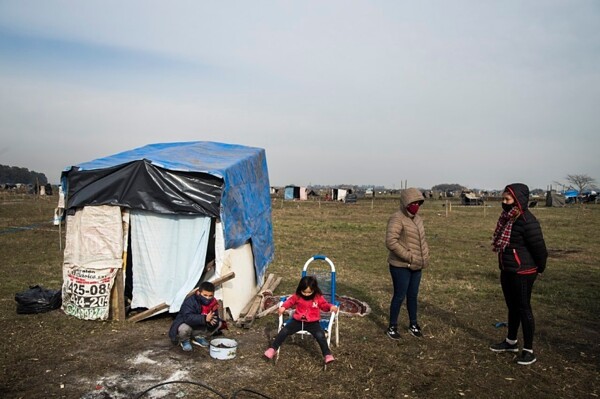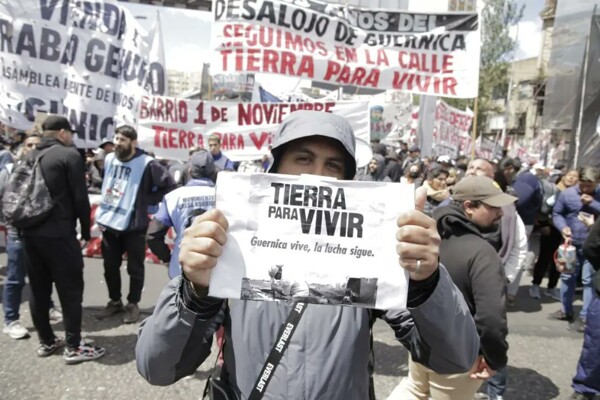
Eviction and repression were the response to the historical problem of workers' access to land for living, a crisis starkly exposed by the pandemic. From there, the families organized to continue their demands. 'Today we are going to La Plata to speak with officials from the Ministry of Development, Land, and Habitat to see if they give us more concrete answers regarding the allocation of housing, when the construction will be completed, or at least for sector D, which is 80% complete, and when those houses will be delivered to the families that have been fighting for five years.' The Guernica issue is not resolved; the families remain organized. It was in the middle of the pandemic. It was an important assembly in front of the municipality, where the families debated a petition to the authorities. 'We have been fighting for 5 years and a while ago we became part of a follow-up commission for the progress of the work in the territory, as watchdogs of the construction progress.' The Guernica land occupation was at the center of the political scene; the problem of access to housing for the majority of the population was the expression of a new wave of land occupations driven by the economic crisis exacerbated by the pandemic. They were evicted. It was in front of the municipality of Presidente Perón to demand a working table so that the houses can be allocated, which, according to the families and their works follow-up commission, are 80% complete. Since then, the families have continued to organize to demand land to live on, with no definitive solution to date. On July 20, in the Numancia neighborhood of Guernica, a locality in Presidente Perón, where thousands of families began the process of recovering land to live on a 100-hectare plot, they organized into neighborhoods and began the struggle. This week marked five years of struggle, five years since that eviction,' recounted Ana, a member of the Guernica Land Recovery Assembly, to ANRed. And she added: 'First, we had an agreement that served for nothing, because they promised us a plot with services in 180 days; then it was the houses, which were promised five years ago, and now we are starting to see progress in the construction.' By ANRed. Last Wednesday, the evicted families of Guernica, one of the most important land occupations in recent years, mobilized again to demand their homes. 'Thanks to the struggle and the popular control commission and the follow-up of the work progress, we know that the houses can be raffled for delivery,' the families stated, demanding a working table that provides answers. Last Wednesday, the 29th, marked 5 years since the eviction of the land occupation in Guernica. That is why last Wednesday they mobilized again in front of the municipality of Presidente Perón to demand the allocation of the houses that are 80% complete. On October 29, 2020, the Buenos Aires Police, under the command of then-Buenos Aires Security Minister Sergio Berni, brutally evicted about 1,500 families who had occupied a 100-hectare plot in the Numancia neighborhood, demanding land to build decent housing. So we continue to demand on our part that the conflict be resolved, that we have been in this struggle for five years, as well as to continue supporting and accompanying the different demands and struggles that continue and will surely continue,' expressed Ana in an interview with the radio program, 'Double Meaning.' What happened in Guernica? Ana told that at this moment of the claim they are demanding answers about the allocation of housing and highlighted the importance of the works follow-up commission by the Assembly. On October 29 at 5:30 in the morning, some 4,500 officers began the eviction in the four neighborhoods of Guernica, commanded by then Minister of Security, Sergio Berni; at the head of the provincial governorship, Axel Kicillof. Five years have passed, Guernica is still not resolved, but step by step, progress has been made. We are no longer in a pandemic, but the situation is not better. Economic recession, delayed wages, unemployment, multiple jobs, and even the dream of having a 'rental of one's own' is becoming unattainable. 'The right to land and the possibility of decent housing is a right for all, we reclaim this by recovering land. The poor are indigent, it is impossible to live. Cuts are being made everywhere for those who have the least. This was in the middle of the Covid-19 pandemic. The context we are going through today is a pandemic of hunger, it is another type of pandemic. There is already a part of that construction, it is four sectors, sector D would be the most advanced, at almost 80% construction.'













